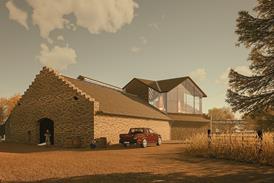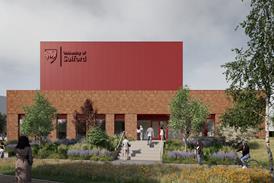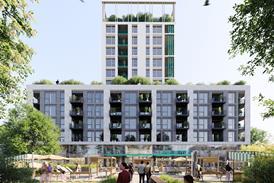RIBA survey finds firms expecting to cut staff over the next three months ahead of planned rise in National Insurance Contributions
Practices are considering redundancies and have pared back recruitment plans following the government’s decision to increase National Insurance Contributions (NICs), RIBA has reported.
The institute’s latest Future Trends survey found architecture firms are expecting to make staff cuts over the next three months as its staffing index figure for January dipped below zero to -4.
Any index figure below zero in the survey indicates practices on average expect to see reduced numbers of permanent staff over the next three months.

The index for future workload expectations was also below zero for the third month in a row as practices reported a weak architectural market with a lack of new enquiries and continued “intense” fee competition.
RIBA head of economic research and analysis Adrian Malleson said firms believed planned increases in NICs were “making future recruitment less likely and lessening the scope for staff pay rises”, adding: “Some are considering redundancies.”
“In the context of an under-performing economy and global uncertainty, the architects’ market remains challenging. The profession remains pessimistic about future work,” he said.
“Practices also describe policy and regulation changes negatively affecting workloads, including changes to the Building Regulations, the Listed Places of Worship VAT rebate Grant Scheme, and High-Risk Building procedures.”
However, most regions saw some improvement in their outlook last month, with London’s future workloads index seeing a marked rise to +10 from zero in December and the capital’s staffing index remaining positive at +2.
Sentiment on workloads in Wales and the West and the Midlands and East Anglia also recovered despite remaining below zero, although confidence fell back in the South of England from -3 to -10 and in the North from +21 to +8.
Meanwhile, workload expectations in the public sector have deteriorated to -14 from -5 and from -4 to -8 in the commercial sector, although the outlook for private housing has bounced back to zero from -5 in December.
















No comments yet